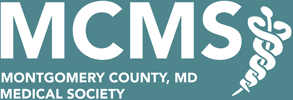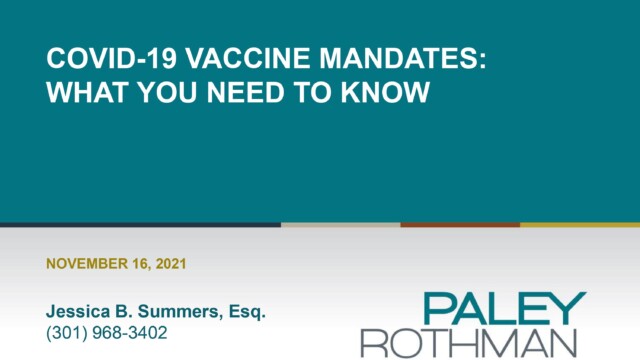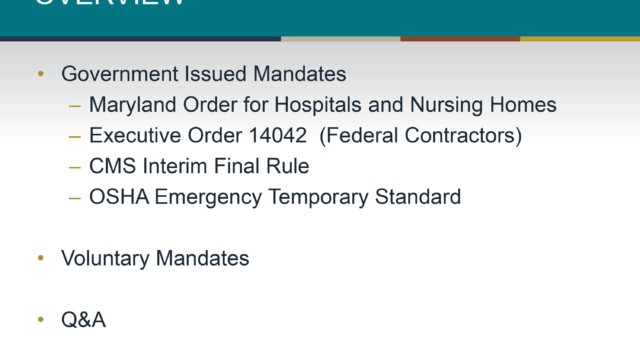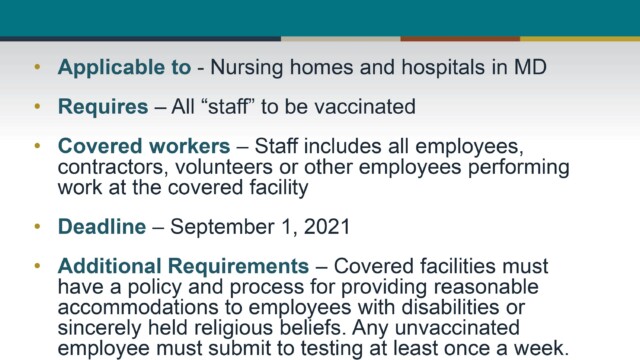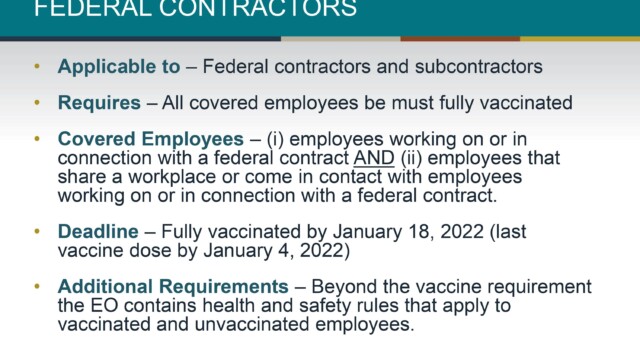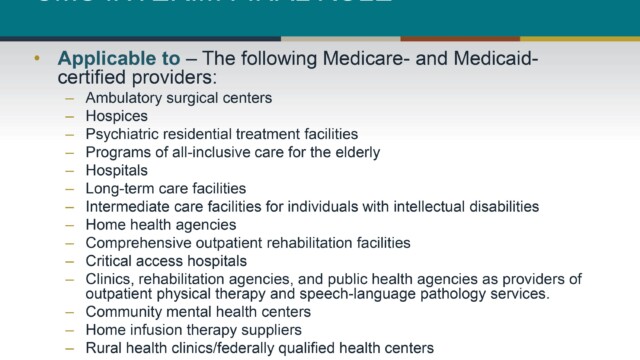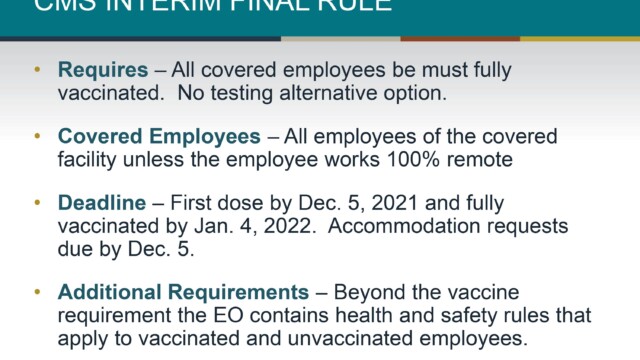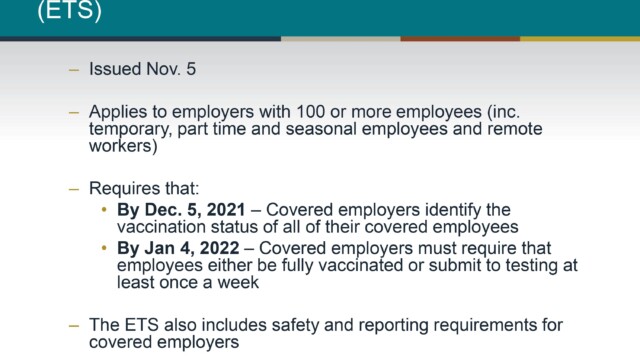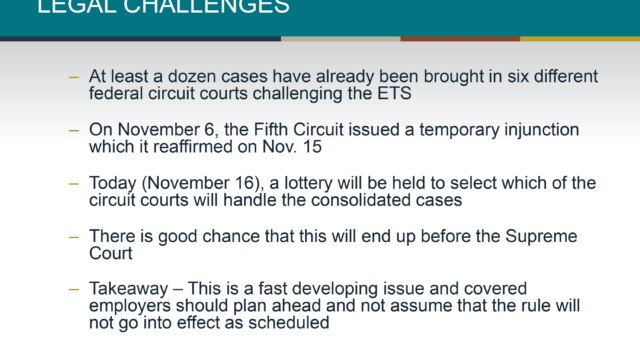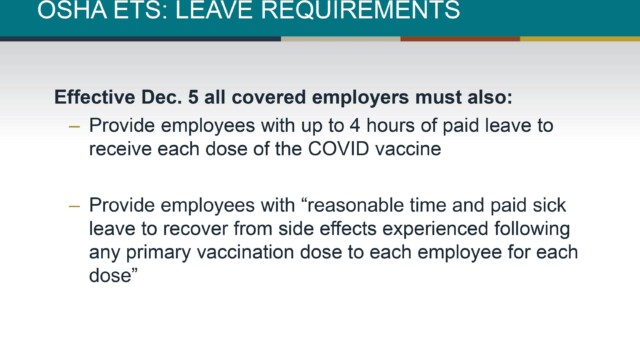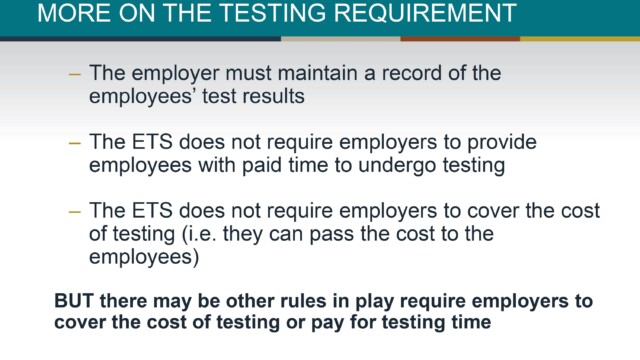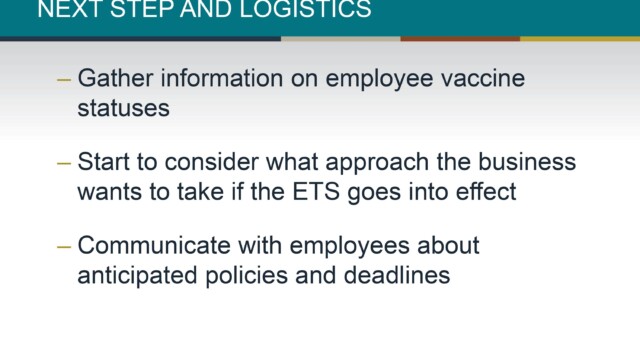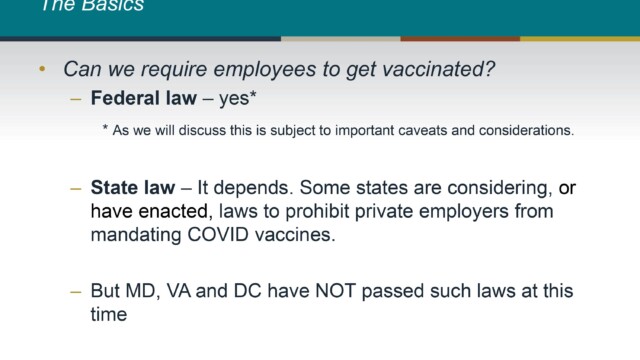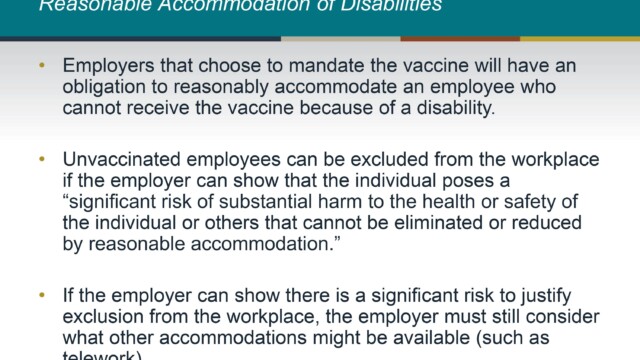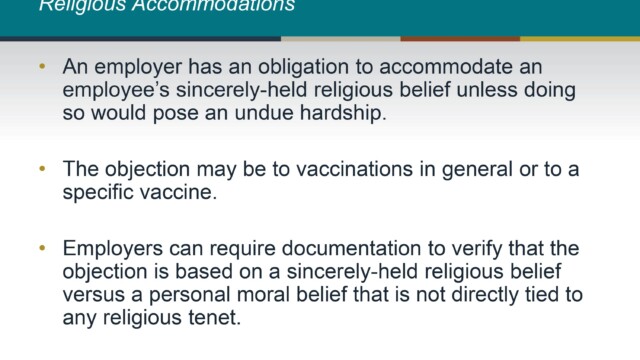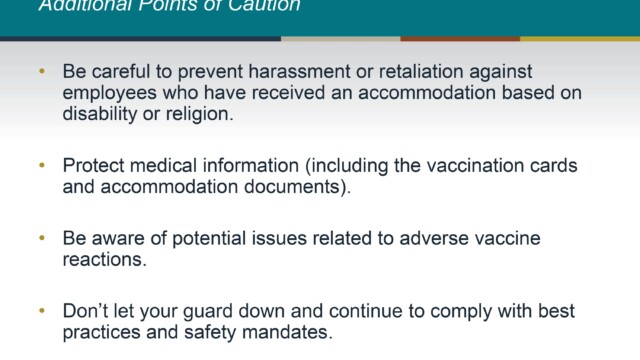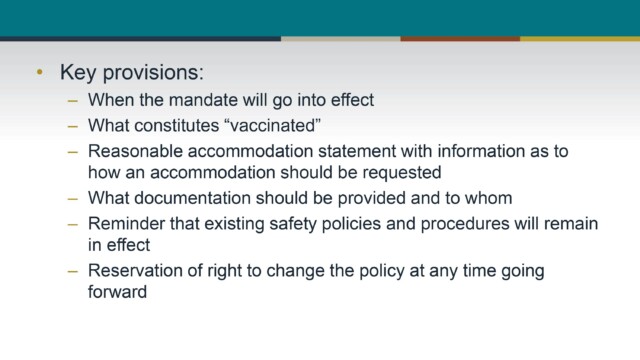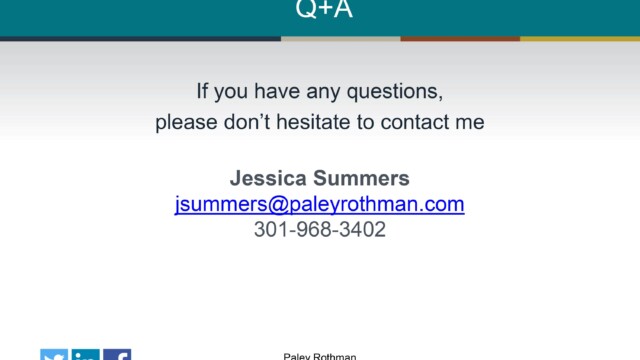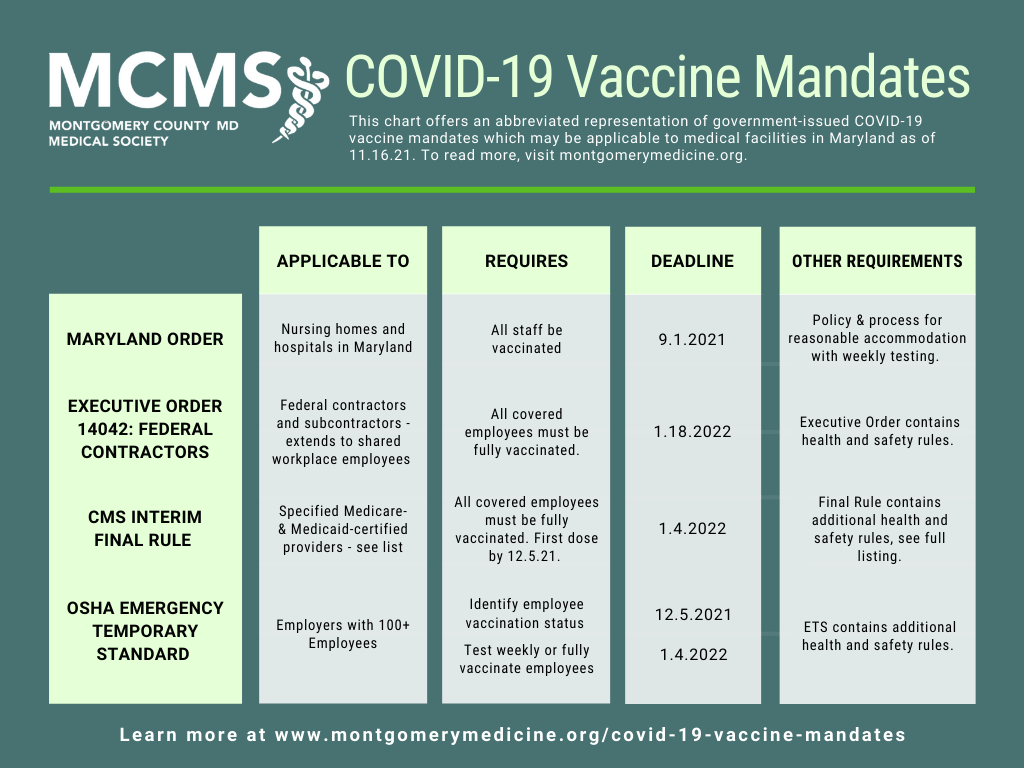COVID-19 Vaccine Mandates
On November 16, 2021, MCMS held a webinar with Jessica Summers, Esq. from the law firm of Paley Rothman on COVID-19 vaccine mandates. The webinar discussed both government-issued and voluntary employer mandates. Key government-issued mandates include the Maryland Order for Hospitals and Nursing Homes, Federal Executive Order 14042, the CMS Interim Final Rule, and the OSHA Emergency Temporary Standard. Below are resources from the webinar, a graphic summarizing the government-issued mandates, and a summary of voluntary employer mandates from the webinar.
Access Webinar Resource On-Demand
Click through below to access the slide deck. To watch a recording of the webinar, visit MCMS on YouTube or access our online learning library.
Government-Issued Vaccine Mandates At-A-Glance
The chart below provides abbreviated information about the vaccine mandates, to whom they apply, and their compliance deadlines. For the full details of each mandate, please reference the slide deck and recordings above.
Voluntary/Employer-Issued Vaccine Mandates
Can employers require employees to get vaccinated? Under federal law, yes, subject to important caveats and considerations. Under state law, it depends. Some states are considering, or have enacted, laws to prohibit private employers from mandating COVID vaccines, but Maryland, Virginia, and DC have NOT passed such laws at this time
Caveat One: Reasonable Accommodation of Disabilities
Employers that choose to mandate the vaccine will have an obligation to reasonably accommodate an employee who cannot receive the vaccine because of a disability. Unvaccinated employees can be excluded from the workplace if the employer can show that the individual poses a “significant risk of substantial harm to the health or safety of the individual or others that cannot be eliminated or reduced by reasonable accommodation.” If the employer can show there is a significant risk to justify exclusion from the workplace, the employer must still consider what other accommodations might be available (such as telework).
Caveat Two: Religious Accommodations
An employer has an obligation to accommodate an employee’s sincerely-held religious belief unless doing so would pose an undue hardship. The objection may be to vaccinations in general or to a specific vaccine. Employers can require documentation to verify that the objection is based on a sincerely-held religious belief versus a personal moral belief that is not directly tied to any religious tenet.
Four Additional Points of Caution
- Be careful to prevent harassment or retaliation against employees who have received an accommodation based on disability or religion.
- Protect medical information (including the vaccination cards and accommodation documents).
- Be aware of potential issues related to adverse vaccine reactions.
- Don’t let your guard down and continue to comply with best practices and safety mandates.
Employer Policies Should Include:
A date of when the mandate will go into effect, a definition of what constitutes “vaccinated”, a reasonable accommodation statement with information as to how an accommodation should be requested, what documentation employees must provide and to whom, a reminder that existing safety policies and procedures will remain in effect, and a reservation of right to change the policy at any time going forward.
Further Reading on Employer Vaccine Mandates
In September, MCMS published a Q&A on this topic in collaboration with SHRM, the Society for Human Resource Management, which has offered extensive, free resources for employers throughout the pandemic. Read the Q&A.
